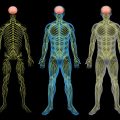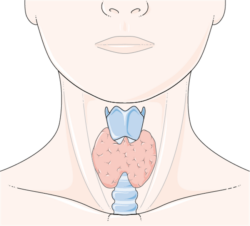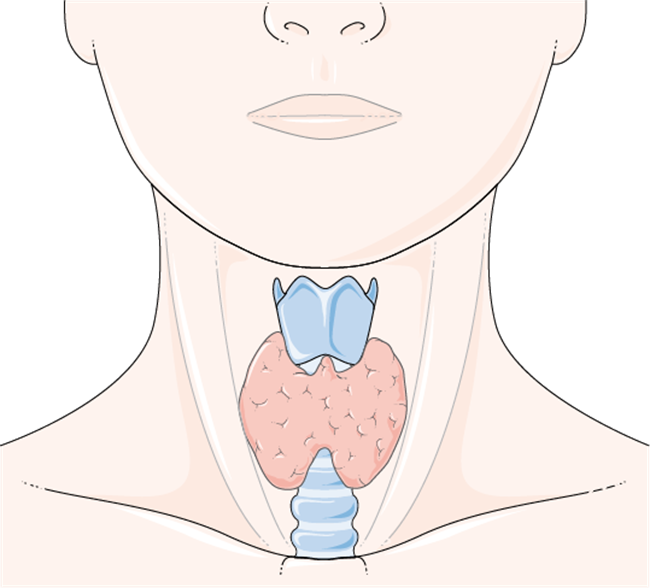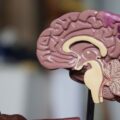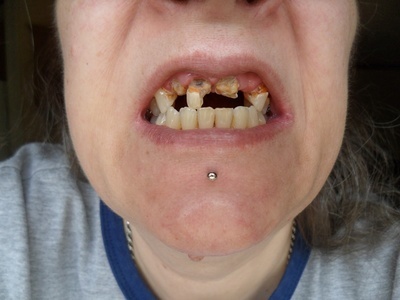Dear Epidemiologists,
I am writing to encourage you to study the long-term and intergenerational adverse-effects of fluoroquinolone antibiotics (Cipro, Levaquin, Avelox, Floxin, and their generic counterparts). It has been noted by both patient groups and the FDA that fluoroquinolones have long-term adverse-effects, yet many patients and physicians are caught off-guard when fluoroquinolone toxicity symptoms are not transient. Fluoroquinolone toxicity symptoms are similar to those of many multi-symptom, chronic, mysterious diseases of modernity, and epidemiological studies are needed in order to determine if the similar symptoms are coincidental, or if they are indicative of a causal relationship between fluoroquinolone use and many of the diseases that fluoroquinolone toxicity resembles.
The Acknowledged Adverse Effects
The musculoskeletal adverse effects of fluoroquinolones are well-known, and fluoroquinolone antibiotics even carry a black box warning noting that they increase the risk of tendon ruptures. Studies have shown that fluoroquinolones also increase the risk of retinal detachment, and a recent (2015) article in JAMA Internal Medicine noted that the risk of aortic aneurysm and dissection is increased with fluoroquinolone use. All these adverse effects point to fluoroquinolones causing collagen synthesis disorders and/or collagen toxicity.
The 2015 BMJ Open article, “Fluoroquinolones and collagen associated severe adverse events: a longitudinal cohort study” goes over the increased risk of tendon ruptures, retinal detachment and aortic aneurysm and dissection in those given fluoroquinolones. The authors conclude that:
“Current fluoroquinolone use was associated with an increased hazard of tendon rupture (HR 3.13, 95% CI 2.98 to 3.28), and increased hazard of aortic aneurysms (HR 2.72, 95% CI 2.53 to 2.93). The relative hazard of these two collagen-associated adverse events were slightly attenuated after multivariate adjustment, but remained clinically meaningful and statistically significant (table 2). The relative hazard of retinal detachment was modest in magnitude, and only statistically significant after multivariate adjustment (table 2). The magnitude of the association of fluoroquinolones and aortic aneurysm events was stronger than the association observed with other aneurysm risk factors such as hypertension and atherosclerosis (table 3).”
“Fluoroquinolones and collagen associated severe adverse events: a longitudinal cohort study” is an excellent study, and I commend the authors for their work. However, a couple of drawbacks of it are that the authors only look at patients who are over the age of 65, and the time-period examined is only 30-days post-exposure, though many fluoroquinolone toxicity patients are under the age of 65, and many experience adverse effects months, or even years, after exposure to the fluoroquinolone.
It would be helpful for both patients and physicians if similar studies were conducted looking at the long-term health outcomes for people of various ages after exposure to fluoroquinolones.
Collagen Synthesis Problems and CNS Symptoms
The relationship between other diseases that have to do with disordered collagen synthesis and fluoroquinolone use should also be examined. For example, fluoroquinolone adverse-effects include many central nervous system symptoms, including convulsions, toxic psychosis, suicidal ideation, dizziness, confusion, tremors, hallucinations, depression, anxiety, insomnia, and many other psychiatric symptoms. It is possible that the collagen in the central nervous system is adversely affected by fluoroquinolones, and that fluoroquinolone use is associated with the rise in psychiatric illnesses in the population. It is a hypothesis that should be explored.
Fluoroquinolones and Multi-symptom, Chronic Illnesses
Many patients who have adverse reactions to fluoroquinolones suffer from multi-symptom, often chronic, illness. Fluoroquinolone toxicity has symptoms that are similar to those of autoimmune diseases (including lupus, rheumatoid arthritis and M.S.), neurodegenerative diseases (including ALS and Parkinson’s), and mysterious diseases like fibromyalgia and M.E./chronic fatigue syndrome, and the symptoms often overlap with those of chronic Lyme disease. (Some patient stories that go over the symptoms of fluoroquinolone toxicity can be found on www.fqwallofpain.com). It would be helpful if some epidemiological studies were done to see if fluoroquinolone exposure predisposes people to a diagnosis of an autoimmune, neurodegenerative or other mysterious diseases.
Those who have experienced fluoroquinolone toxicity see the connections between fluoroquinolones and those diseases—because we went from being healthy to suddenly being sick with symptoms of multiple chronic diseases shortly after taking a fluoroquinolone—but our experiences are only anecdotal unless studies confirm our assertions. Epidemiological studies to determine whether or not there is a connection between fluoroquinolone use and autoimmune, neurodegenerative and mysterious diseases would be immensely helpful in showing whether the relationship is causal or anecdotal.
Fluoroquinolones and Diabetes, Heart-disease, and Autism
Fluoroquinolones have been shown to cause dysglycemia and use of fluoroquinolones is correlated with type-2 diabetes. Diabetes is a growing problem that is causing pain and suffering to millions of people worldwide. If even a small percentage of diabetes cases could be prevented through more prudent use of fluoroquinolones, much pain and suffering could be alleviated. Quantifying the relationship between fluoroquinolone use and diabetes via an epidemiological study would be immensely useful.
Given that fluoroquinolones have been shown to increase incidence of aortic dissection and aneurysm, it would be interesting to see if they are associated with heart-disease more generally.
It was noted in the 2013 article in Nature, “Topoisomerases facilitate transcription of long genes linked to autism” that, “chemicals or genetic mutations that impair topoisomerases, and possibly other components of the transcription elongation machinery that interface with topoisomerases, have the potential to profoundly affect expression of long ASD (autism spectrum disorder) candidate genes.” Since fluoroquinolone antibiotics are the most commonly prescribed topoisomerase interrupting drugs, it is worthwhile to look into whether or not they are related (intergenerationally, most likely) to autism.
Longer-Term Studies Are Needed
It has been known for many decades that fluoroquinolones have serious and severe adverse-effects, yet very few studies of the long-term effects of fluoroquinolones have been conducted. Fluoroquinolone affected patients have been noting that they have experienced fluoroquinolone toxicity symptoms months, or even years, after administration of the drugs has ceased, and even the FDA has noted that fluoroquinolone associated disability (FQAD) is a consequence of fluoroquinolone use. However, fluoroquinolone studies have primarily concentrated on adverse-effects that occur while the drug is being administered. Long-term, and even intergenerational, epidemiological studies will enlighten us to the true consequences of fluoroquinolones.
Many Questions to Study
How much does fluoroquinolone use increase a person’s risk of getting an autoimmune disease? How much more likely is a person to become diabetic if they use a fluoroquinolone to treat a sinus infection? How much more likely is a person to need a pain medication like Lyrica if they have been prescribed a fluoroquinolone in the past? Are thyroid diseases more common in those who have taken fluoroquinolones than in those who haven’t? Are psychiatric illnesses more common in those who have taken fluoroquinolones? Are people more likely to suffer from heart-disease if they have taken a fluoroquinolone? Are there any intergenerational effects of fluoroquinolones, and, if so, how are they manifesting?
These are all reasonable questions to ask, given the long list of adverse-effects caused by fluoroquinolone antibiotics.
Patients have been screaming about the connections between many of the diseases of modernity and the symptoms of fluoroquinolone toxicity for years, but our screams will only be heard if there are data to back them up. Studies need to be done to get necessary information, so I encourage all scientists who have the access to data and expertise needed, to study fluoroquinolones. People are being hurt by these drugs. Information, data, science and a bit of enlightenment, will help to encourage more prudent and appropriate use of fluoroquinolones, so that the pain caused by them can be minimized.
To all the scientists who have studied fluoroquinolones—your work is appreciated and I hope that it is built upon. Thank you in advance to all those who look further into fluoroquinolone adverse reactions. Your work will be greatly appreciated as well.
Regards,
Lisa Bloomquist
Patient advocate and founder of Floxiehope.com
We Need Your Help
More people than ever are reading Hormones Matter, a testament to the need for independent voices in health and medicine. We are not funded and accept limited advertising. Unlike many health sites, we don’t force you to purchase a subscription. We believe health information should be open to all. If you read Hormones Matter, like it, please help support it. Contribute now.
Yes, I would like to support Hormones Matter.
Photo by Aaron Burden on Unsplash.
This letter was published previously on Hormones Matter in December 2015.




